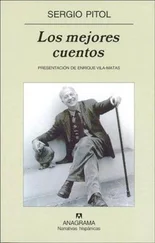“Yours is not the worst of sorrows. Life is long, there will be good and bad to come, there will be everything. Great is mother Russia,” he said, and looked round on each side of him. “I have been all over Russia, and I have seen everything in her, and you may believe my words, my dear. There will be good and there will be bad. I went as a delegate from my village to Siberia, and I have been to the Amur River and the Altai Mountains and I settled in Siberia; I worked the land there, then I was homesick for mother Russia and I came back to my native village. We came back to Russia on foot; and I remember we went on a steamer, and I was thin as thin, all in rags, barefoot, freezing with cold, and gnawing a crust, and a gentleman who was on the steamer — the kingdom of heaven be his if he is dead — looked at me pitifully, and the tears came into his eyes. ‘Ah,’ he said, ‘your bread is black, your days are black…’ And when I got home, as the saying is, there was neither stick nor stall; I had a wife, but I left her behind in Siberia, she was buried there. So I am living as a day labourer. And yet I tell you: since then I have had good as well as bad. Here I do not want to die, my dear, I would be glad to live another twenty years; so there has been more of the good. And great is our mother Russia!” and again he gazed to each side and looked round. 25
In a single paragraph he has invoked the greatness of Mother Russia three times! Not only is a Russian susceptible to feeling the pulse of Mother Russia. Rainer Maria Rilke, whom the Russian Lou Andreas-Salomé accompanied for several months as a guide, mother, muse, lover, teacher, writes on July 31, 1900, aboard a steamer down the Volga, “All that I had seen until then was but a picture of country, river, world. Here was the real thing in natural size. I felt as if I had watched the creation; few words for all that is, things made on God the Father’s scale.” 26What about that!

23 Pitol uses Tiflis to allude to the city’s historic name and one that Pushkin would have known, to distinguish it from contemporary Tbilisi. —Trans.
24 Translated by Richard Howard.
25 Translated by Constance Garnett.
26 Translated by Margaret Wettlin.
WHEN THE SOUL IS DELIRIOUS
“Paupers, soothsayers, beggars, mendicant chanters, lazars, wanderers from holy place to holy place, male and female, cripples, bogus saints, blind Psalm singers, prophets, idiots of both sexes, fools in Christ — these names, so close in meaning, of the double-ring sugar cakes of the everyday life of Holy Russia, paupers on the face of Holy Russia, holy Psalm singers, Christ’s cripples, fools in Christ 27of Holy Russia — these sugar cakes have adorned everyday life from Russia’s very beginnings, from the time of the first Tsar Ivans, the everyday life of Russia’s thousand years. All Russian historians, ethnographers, and writers have dipped their quills to write about these holy fools. These madmen or frauds — beggars, bogus saints, prophets — were held to be the Church’s brightest jewel, Christ’s own, intercessors for the world, as they have been called in classical Russian history and literature. A noted Muscovite fool in Christ — Ivan Yakovlevich, 28a onetime seminarian — who lived in Moscow in the middle of the nineteenth century, died in the Preobrazhensaya Hospital. His funeral was described by reporters, poets, and historians. A poet wrote in the Vedomosti : 29
What feast is in the Yellow House 30afoot,
And wherefore are the multitudes there thronging,
In landaus and in cabs, nay e’en on foot,
And ev’ry heart is seized with fearful longing?
And in the midst is heard a voice of woe
In direst pain and grief ofttimes bewailing:
‘Alas, Ivan Yakovlevich is laid low,
The mighty prophet’s lamp too soon is failing.’
“Stravronsky, a chronicler of the times, relates in his Moscow Sketches that during the five days that the body lay unburied more than two hundred masses for the repose of the dead were sung over it. Many people spent the night outside the church. An eyewitness of the funeral, N. Barkov, the author of a monograph entitled Twenty-six Muscovite Sham Prophets, Sham Fools in Christ, Idiots, Male and Female, relates that Ivan Yakovevich was to have been buried on Sunday,
as had been announced in the Police Gazette, and that day at dawn his admirers began flocking in, but the funeral did not take place because of the quarrels which broke out over where exactly he was to be buried. It did not quite come to a free-for-all, but words were exchanged, and strong ones they were. Some wanted to take him to Smolensk, his birthplace; others worked busily to have him buried in the Pokrovsky Monastery, where a grave had even been dug for him in the church; others begged tearfully that his remains be given to the Alekseyevsky Nunnery; still others, hanging on to the coffin, tried to carry it off to the village Cherkizovo. It was feared that the body of Ivan Yakovlevich might be stolen.
“The historian writes: ‘All this time it was raining, and the mud was terrible, but nevertheless, as the body was carried from the lodgings to the chapel, from the chapel to the church, from the church to the cemetery, women, girls, ladies in crinolines prostrated themselves and crawled under the coffin.’ Ivan Yakovlevich — when he was alive — was in the habit of relieving himself on the spot:
He made puddles [writes the historian], and his attendants had orders to sprinkle the floor with sand. And this sand, watered by Ivan Yakovlevich, his admirers would gather and carry home, and it was discovered that the sand has healing properties. A baby gets a tummy ache, his mother gives him half a spoonful of the sand in the gruel, and the baby gets well. The cotton with which the deceased’s nose and ears had been plugged was divided into tiny pieces after the funeral service for distribution among the faithful. Many came with vials and collected in them the moisture which seeped from the coffin, the deceased having died of dropsy. The shirt in which Ivan Yakovlevich had died was torn to shreds. When the time came for the coffin to be carried out of the church, freaks, fools in Christ, pious hypocrites, wanderers from holy place to holy place, male and female were gathered outside. They had not gone into the church, which was packed, but stood in the streets. And right there in broad daylight, among the assembled, sermons were preached to the people, visions called up and seen, prophecies and denunciations uttered, money collected, and ominous roarings given forth.
“During the last years of his life Ivan Yakovlevich used to order his admirers to drink the water in which he had washed: they drank it. Ivan Yakovlevich made not only spoken but also written prophecies that have been preserved for historical research. People wrote to him; they would ask, ‘Will so-and-so get married?’ He would reply, ‘No work — no supper…’
“Kitai-gorod 31Moscow was the cheese in which the fools in Christ — its maggots — lived. Some wrote verse; others crowed like roosters, screamed like peacocks, or whistled like bullfinches; others heaped foulness on all and sundry in the name of the Lord; still others knew only a simple phrase which was held to be prophetic and gave the prophet his name; for example, ‘Man’s life’s a dream, the coffin — coach and team, the ride — was smooth as cream!’ Also to be found were devotees of dog barking who with their barking prophesied God’s will. To this estate belonged paupers, beggars, soothsayers, mendicant chanters, lazars, bogus saints — the cripples of all of Holy Russia; to it belonged peasants and townfolk, and gentry and merchants — children, old men, great, hulking louts, brood mares of women. They were all drunk. They were all sheltered by the onion-domed, sky-blue clam of the Asiatic Russian tsardoms; they were bitter as cheese and onions, for the onion domes atop the churches are, of course, the symbol of oniony life.” 32
Читать дальше













